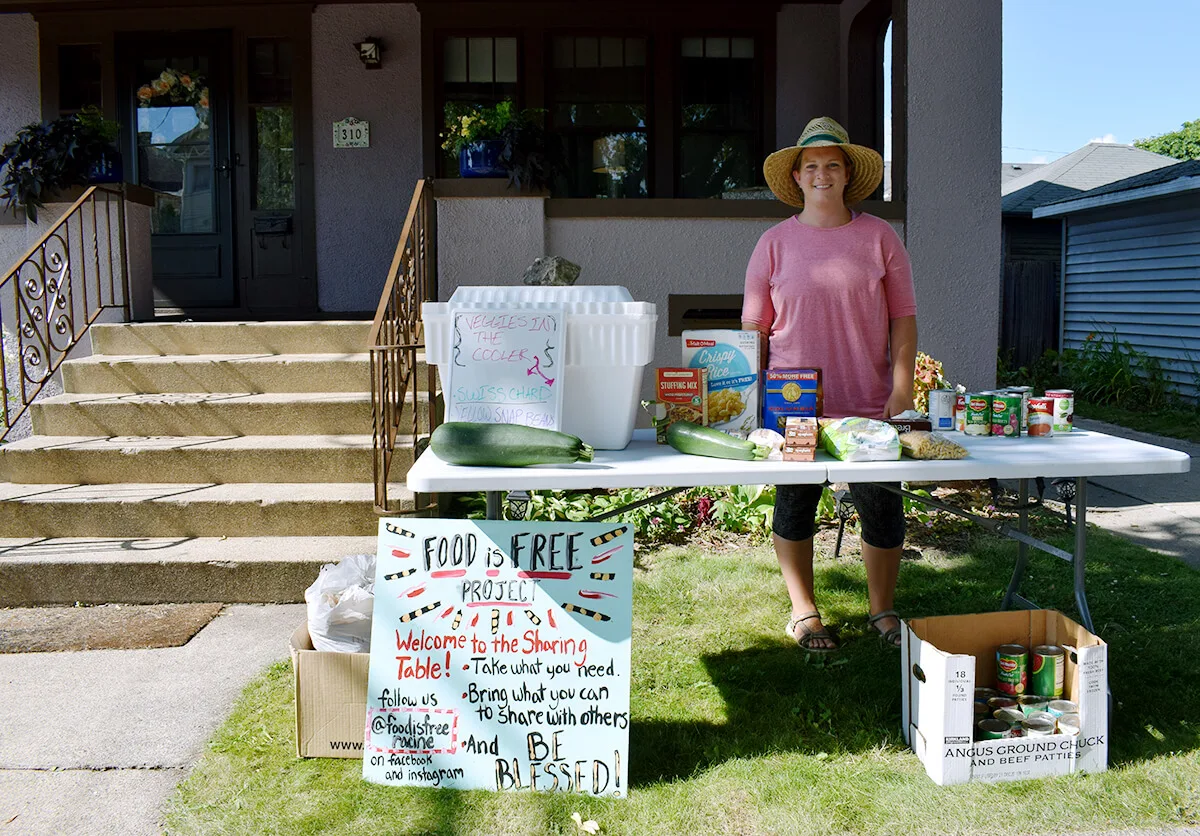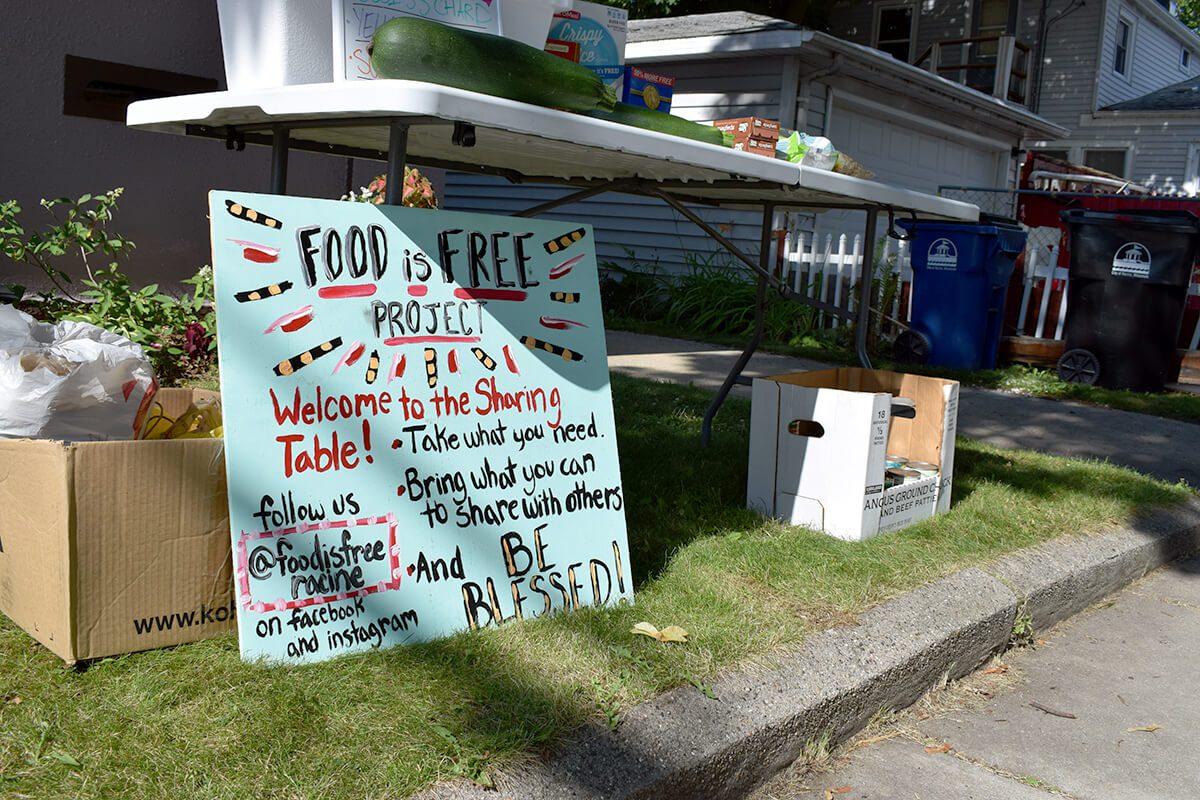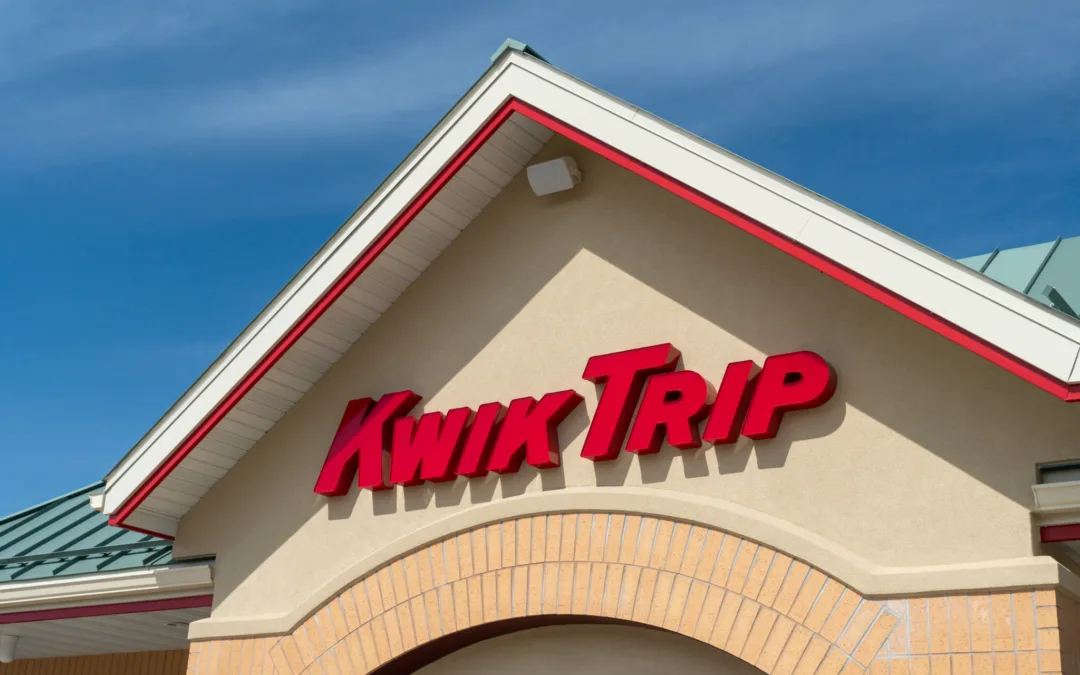
#image_title
#image_title
Woman provides food for a neighborhood with grocery stores close by.
If Hillary Schoettel didn’t have a car or couldn’t afford to take the bus, it would take her nearly two hours just to get fresh groceries from the nearest store, which is almost two miles away, and return home.
Just south of downtown Racine, Schoettel’s house sits in a food desert on the edge of a mixed-income neighborhood bordered by a broad swath of working-class and low-income areas to the west and southwest where the median household income is below $30,000, according to CityData.
Food deserts, or areas where there is little or no access to affordable, healthy food, afflict much of Wisconsin, especially in rural and poor urban areas.
So Schoettel decided she would help her neighbors out by providing free, nutritious food right in their own neighborhood.
“It’s just as simple as putting out a table,” said Schoettel, who moved to the heart of Racine a couple years ago after having lived in the adjacent rural-suburban Village of Caledonia.
Schoettel’s sharing table has free items ranging from fresh Swiss chard from her backyard garden to boxed pastas and hygiene products. She started the food stand on July 1, becoming part of the worldwide Food is Free network of front-yard food stands and community gardens, inspired by the popular and ever-growing Food is Free stand in Milwaukee’s impoverished north-side Sherman Park neighborhood.
“We don’t get anywhere by just staying out of the areas that are considered ‘trouble,’” Schoettel said.
Food is Free has been around since 2011. There are over 350 local chapters around the world, according to the organization’s website. The stands are typically set up in cultivators’ front-yard gardens, inviting people from the neighborhood to come pick fresh foods, but they can take many different forms, such as Schoettel’s. Her stand has so far thrived on her homegrown produce and donations.
There was a short-lived corner grocery store in downtown Racine, closer to Schoettel’s neighborhood, but it closed in May after just six months in business. It sold organic food options more geared toward a middle-class and upper-middle class customer base.
“Someone who’s not hardly making rent, they’re not going to worry about grass-fed beef or local honey,” Schoettel said. “You know what I mean? Stuff like that’s more privileged, in a sense, for people to buy. I knew that that wasn’t necessarily solving an issue, either.”

Racine has a number of food pantries and food distribution programs, but they rely upon someone having knowledge of the programs and having the transportation necessary to get there.
In Schoettel’s neighborhood, there is a Community Oriented Policing, or COP, House that serves as a place for area children to hang out and get food. But the COP House was severely damaged by arson on June 1 amid protests over the death of George Floyd.
And while the coronavirus pandemic was not Schoettel’s motivator to starting the food stand, she acknowledged that its presence could very well be making a big difference in people’s lives while they are stricken with food and rent insecurity and layoffs.
The best way for people to get involved in fighting food insecurity in their community is to start a food stand themselves, Schoettel said.
“It’s really, really simple,” she said. “Especially if you live in areas like this where it’s more of an urban area.”
Politics

It’s official: Your boss has to give you time off to recover from childbirth or get an abortion
Originally published by The 19th In what could be a groundbreaking shift in American workplaces, most employees across the country will now have...

Trump says he’s pro-worker. His record says otherwise.
During his time on the campaign trail, Donald Trump has sought to refashion his record and image as being a pro-worker candidate—one that wants to...
Local News

Stop and smell these native Wisconsin flowers this Earth Day
Spring has sprung — and here in Wisconsin, the signs are everywhere! From warmer weather and longer days to birds returning to your backyard trees....

Your guide to the 2024 Blue Ox Music Festival in Eau Claire
Eau Claire and art go hand in hand. The city is home to a multitude of sculptures, murals, and music events — including several annual showcases,...




